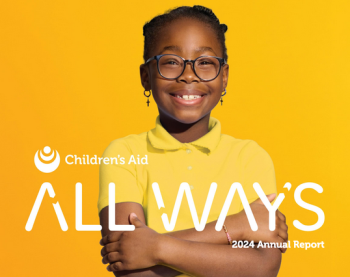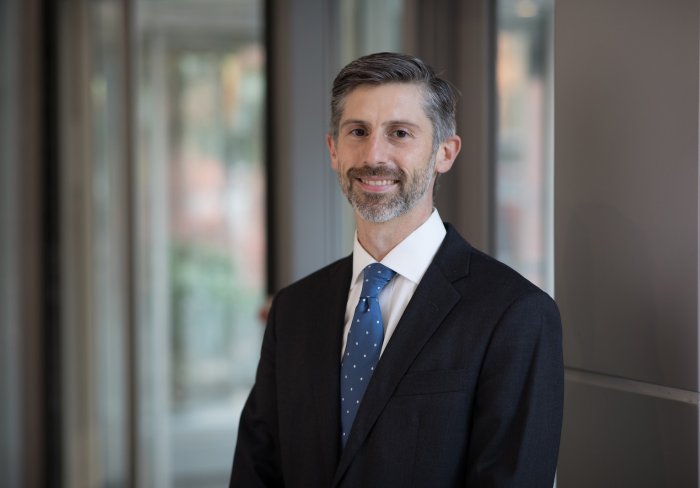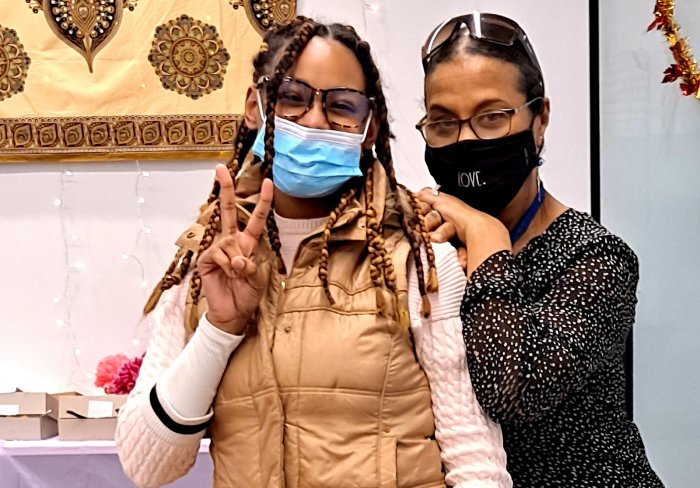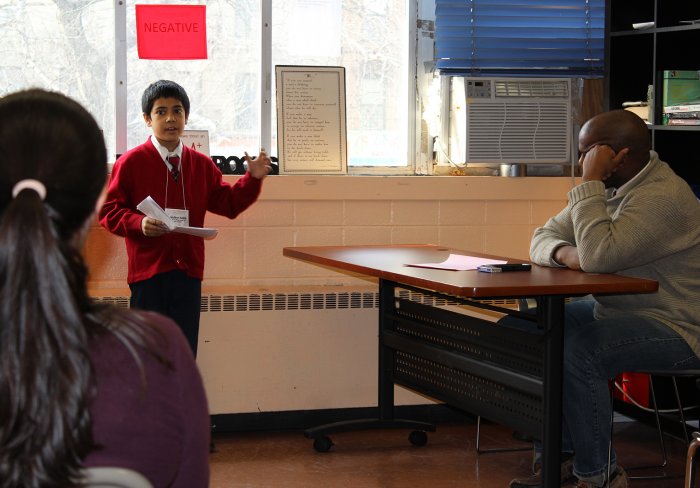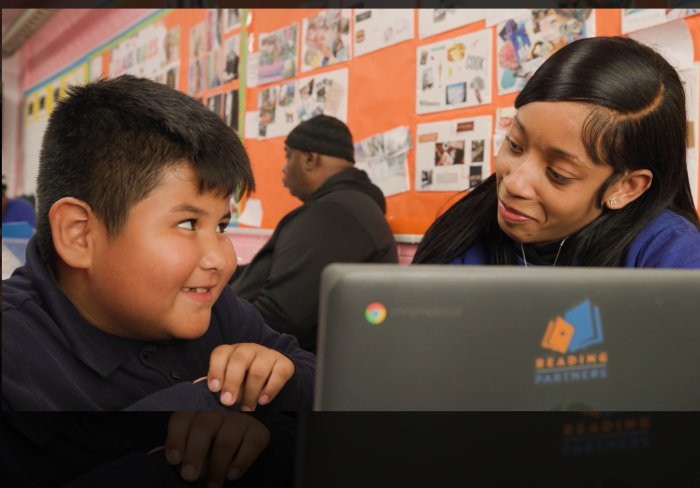It’s spring, a time of the year when youth sports programs begin to kick into high gear, and athletes embrace their chance to play the games they love. But this year is different.
During the growing COVID-19 pandemic, many youth sports programs and recreation leagues have been placed on hold. Clyde Weems (pictured, far right), student services coordinator at the College and Career Access and Success program at Children’s Aid wants to make sure youth are prepared when they return to school and their sports teams. He is periodically reaching out to college students and inquiring about their needs – whether it’s laptops, internet access, or basic school supplies. He also wants to ensure they are safe and staying positive. He asks students if they are experiencing troubling issues or if they need a place to vent and talk about their anxieties.
Clyde understands the impact athletics make in the lives of young adults and wants to help increase success in academics and sports.
“I’ve always had a passion for sports because I know what sports can do for one person, a lot of young people play sports and unfortunately the season is canceled. There’s no basketball, there’s no open field, there’s nowhere to train,” he said.
Clyde started a program called “Progress over Pride” – a coaches’ corner that is open to all youth that fall under the Children’s Aid banner. The program is executed through a regular Zoom video with students from Dunlevy Milbank Community Center, Fannie Lou Hamer Freedom High School, Fredrick Douglass Community Center, and other communities to help mentor those who are passionate about sports and higher education.
“A lot of times young people don’t understand the commitment that it takes to be a student athlete,” Clyde said. There were a lot of young people who didn’t know what to do, how to train, how to keep focus, how to stay on path with their academics.”
With the outbreak of COVID-19, Clyde is engaging coaches he knows that once attended Children’s Aid programs at Milbank, or grew up in a New York City neighborhood, to join the Zoom meetings as mentors and storytellers.
“It’s important to have new voices,” he said. “During the first call we had about 18-20 students, but since then it has continuously grown.”
Recently, a childhood teammate of Clyde’s was a guest and talked about his own depression and stress. His experience was very relatable to the youth.
“I just think that sports is a great vehicle to get to a destination called success,” Clyde said. “I hope people understand that sports and academics go hand in hand and the life lessons that you take from sports are teamwork, hard work, dedication, and lessons that you can’t get in a classroom sometimes. I hope that this coaches' corner will emphasize those things.”
